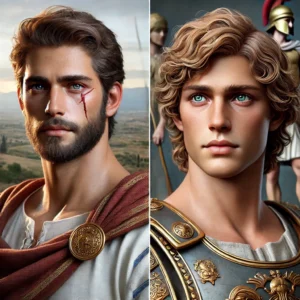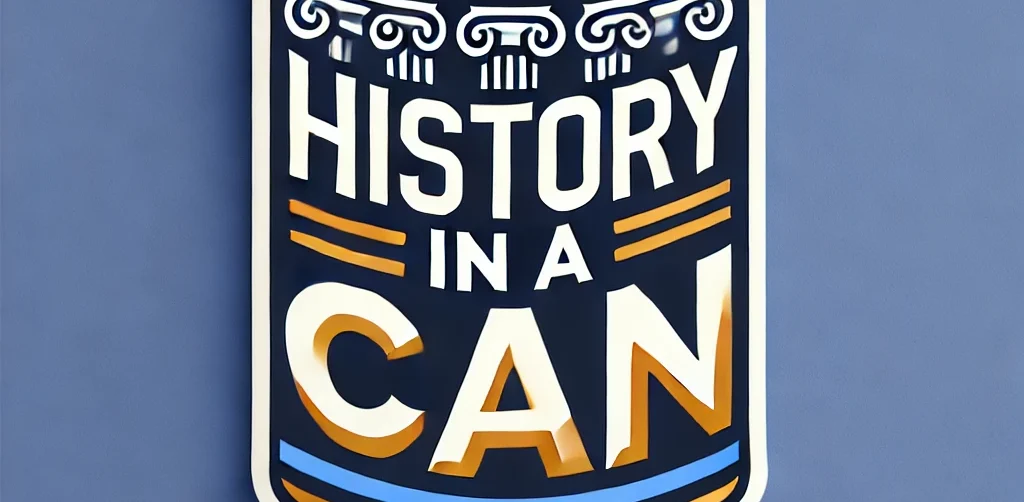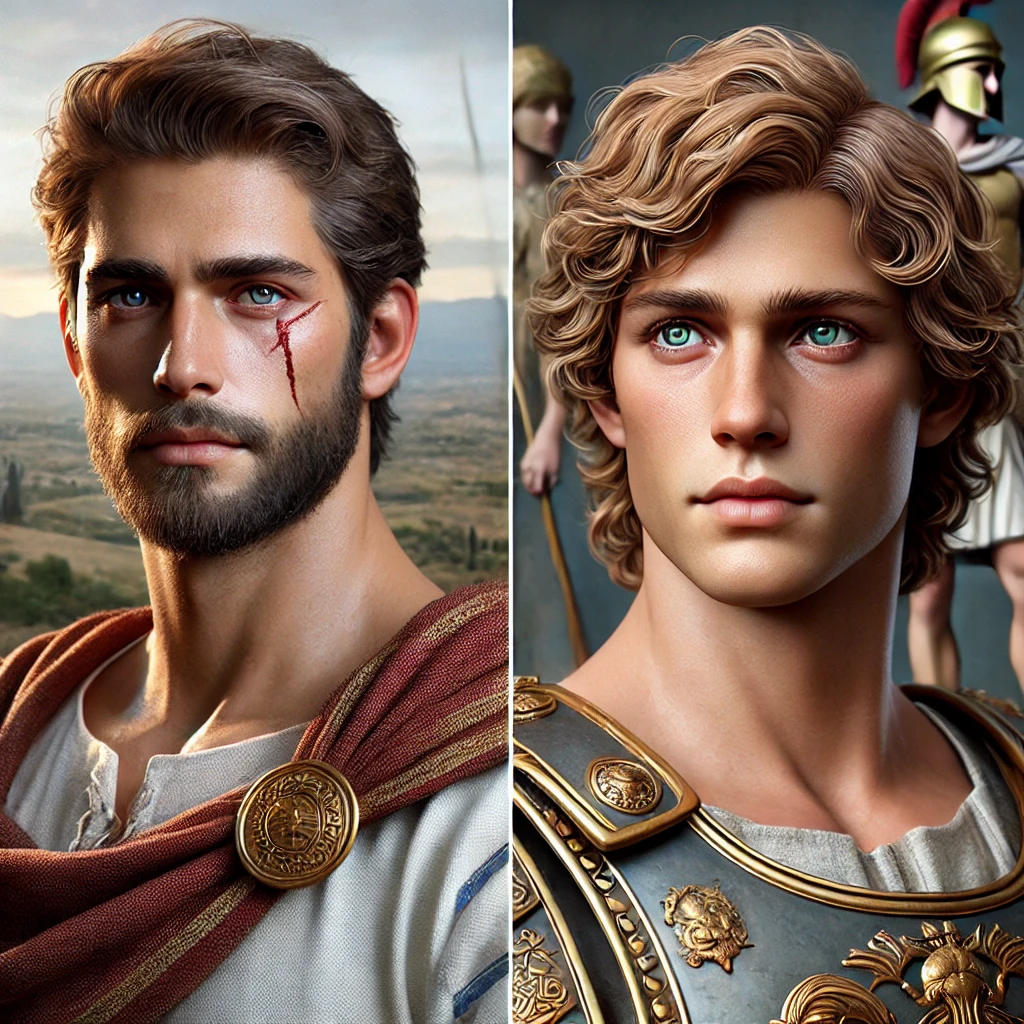When comparing Alexander the Great to his father, King Philip II of Macedon, both were brilliant leaders and accomplished military strategists, but they played very different roles in shaping the course of history. Here’s a side-by-side look at the two:

1. Origins and Background
Philip II of Macedon
- Born: 382 BC
- Reign: 359–336 BC
- Role: King of Macedon, military reformer, and the unifier of Greece.
- Accomplishments: Philip was not originally expected to become king but rose to power after a series of complex events. He transformed Macedon from a relatively weak state into a dominant military power.
Philip laid the foundation for Macedonian supremacy through military innovations and political alliances. He introduced the phalanx formation and improved the weaponry of the Macedonian army, making them one of the most formidable forces of the ancient world. He is also credited with uniting the Greek city-states under the League of Corinth, effectively ending centuries of internal warfare in Greece.
Alexander the Great
- Born: 356 BC
- Reign: 336–323 BC
- Role: King of Macedon, leader of one of the largest empires in history, and legendary conqueror.
- Accomplishments: Alexander inherited his father’s military machine and used it to launch one of the most ambitious military campaigns in history, conquering the Persian Empire and extending his dominion all the way to India.
Alexander was groomed from birth to be a leader, receiving an elite education from none other than the philosopher Aristotle, which influenced his approach to governance and culture. Unlike Philip, Alexander’s reign was short but meteoric, and his conquests reshaped the known world.
2. Military Achievements
Philip II
- Conquests in Greece: Philip’s greatest achievement was his conquest and unification of Greece through a combination of diplomacy, marriage alliances, and warfare. His victory at the Battle of Chaeronea (338 BC) against a coalition of Greek city-states cemented his control over Greece.
- Military Innovations: Philip revolutionized the Macedonian army by introducing a new type of phalanx, with longer spears (sarissas) and tighter formations, allowing his soldiers to dominate on the battlefield. His strategic brilliance laid the groundwork for future Macedonian dominance.
- Political Maneuvering: Philip used diplomacy, marriages, and alliances as effectively as military power to expand his influence. His creation of the League of Corinth ensured that Greek city-states were allied under Macedonian leadership, giving him control without constant warfare.
Alexander the Great
- Conquests Across Three Continents: Alexander built on his father’s achievements and led a series of campaigns that took him far beyond Greece, into Asia Minor, Egypt, Persia, and India. His most notable victory was the defeat of Darius III at the Battle of Gaugamela (331 BC), which marked the downfall of the Achaemenid Persian Empire.
- Battlefield Genius: Alexander was a tactical genius, often outnumbered but rarely outmaneuvered. His use of combined arms—infantry, cavalry, and siege tactics—was revolutionary. He frequently led charges himself, which inspired deep loyalty in his troops. His victories at Issus, Granicus, and Hydaspes became legendary examples of brilliant battlefield strategy.
- Hellenistic Influence: Beyond military conquests, Alexander’s empire spread Greek culture across a vast territory, creating the Hellenistic world where Greek ideas, art, and language mingled with local cultures, from Egypt to India.
3. Leadership and Governance
Philip II
- Builder of an Empire: Philip was a master at consolidating power. His success came from uniting a fractured Greece and transforming it into a military superpower. He was less focused on personal glory than Alexander and more concerned with laying down the foundations for a stable empire.
- Pragmatism: Philip’s reign was characterized by political pragmatism. He ruled through strategic marriages and alliances, such as his marriage to Olympias (Alexander’s mother), who came from Epirus, an important ally.
- Administrator and Statesman: Philip reformed Macedon’s internal structure, building roads, fortresses, and towns that improved the state’s infrastructure. He centralized his kingdom, creating a professional and loyal bureaucracy.
Alexander the Great
- Visionary Conqueror: While Alexander inherited Philip’s stable empire, his leadership style was more expansionist and visionary. He dreamed of creating a unified world empire where East and West merged culturally. His efforts to integrate Persians and other local elites into his administration showed his desire to create something new, not just rule by force.
- Administration: Alexander’s governance was often decentralized, as he relied on local rulers and satraps (governors) to maintain control over distant territories. However, he implemented Greek culture wherever he went, founding cities like Alexandria in Egypt that became centers of learning and culture.
- Charisma and Ambition: Alexander was highly charismatic and inspired intense loyalty among his troops. His ambition knew no bounds, as he continuously sought to push the limits of his empire, even marching into India when many thought it was impossible.
4. Legacy
Philip II’s Legacy
- Foundation for an Empire: Philip’s legacy is one of consolidation and preparation. Without Philip’s reforms, military innovations, and political alliances, Alexander would not have had the army or the resources to embark on his conquests.
- United Greece: Philip effectively ended the constant warfare between the Greek city-states and united them under Macedonian rule, paving the way for the spread of Greek culture across the world.
Alexander the Great’s Legacy
- Cultural Transformation: Alexander’s conquests resulted in the widespread diffusion of Hellenistic culture, combining Greek and Eastern influences. The Hellenistic Age that followed his death saw unprecedented cultural and intellectual exchange.
- Unfulfilled Vision: Alexander’s empire fragmented almost immediately after his death, as he left no clear successor and his generals (the Diadochi) divided his empire. Despite this, his military tactics, leadership, and ambition left a lasting impact on history.
- Legendary Status: While Philip is respected as a brilliant leader and strategist, Alexander became a mythic figure, remembered as one of history’s greatest military geniuses. His achievements influenced generations of future conquerors, including Julius Caesar and Napoleon.
Conclusion
- Philip II was the architect who laid the foundation for Macedon’s dominance, transforming it into a formidable power and uniting Greece.
- Alexander the Great built upon his father’s work but took it to unprecedented heights, creating one of the largest empires in history. While his father was a brilliant organizer and strategist, Alexander was the ultimate military leader and visionary, immortalized as a legend in the annals of history.
In short, Philip created the army, and Alexander led it to greatness.

